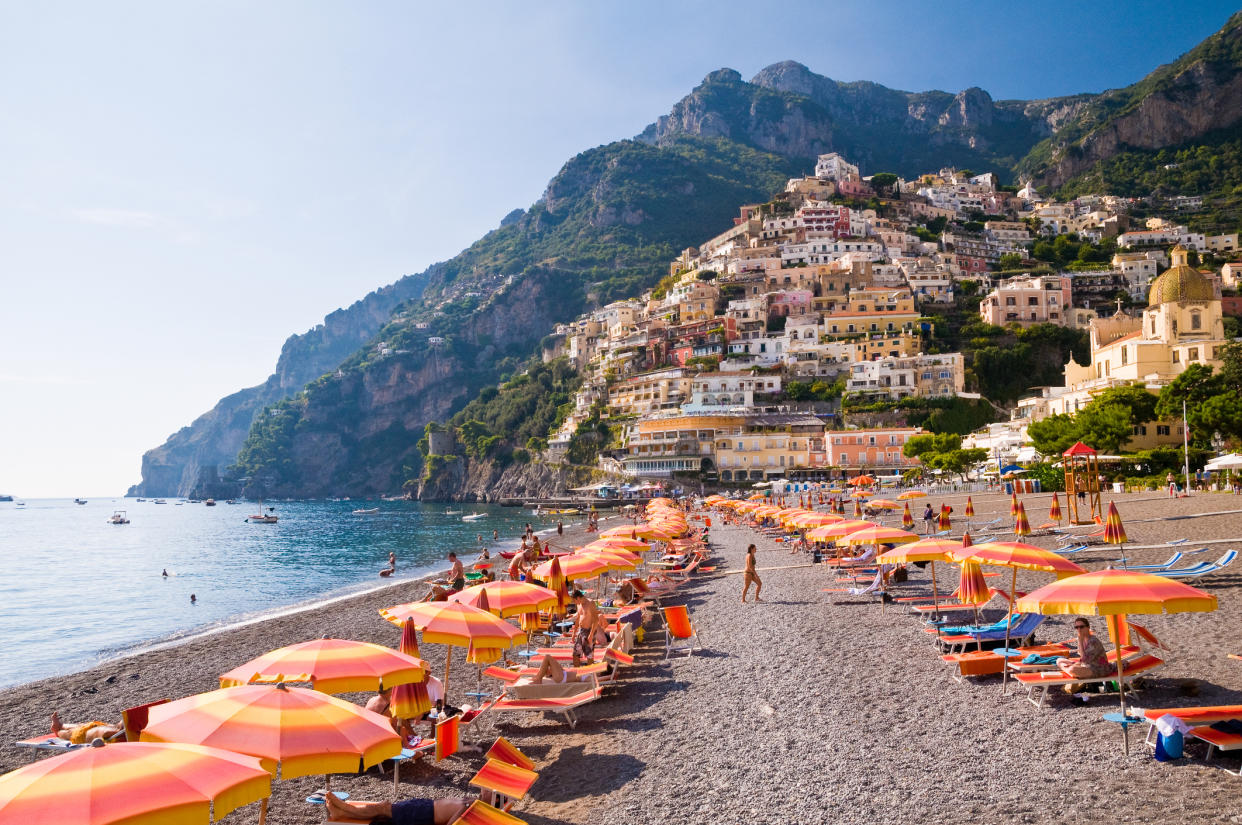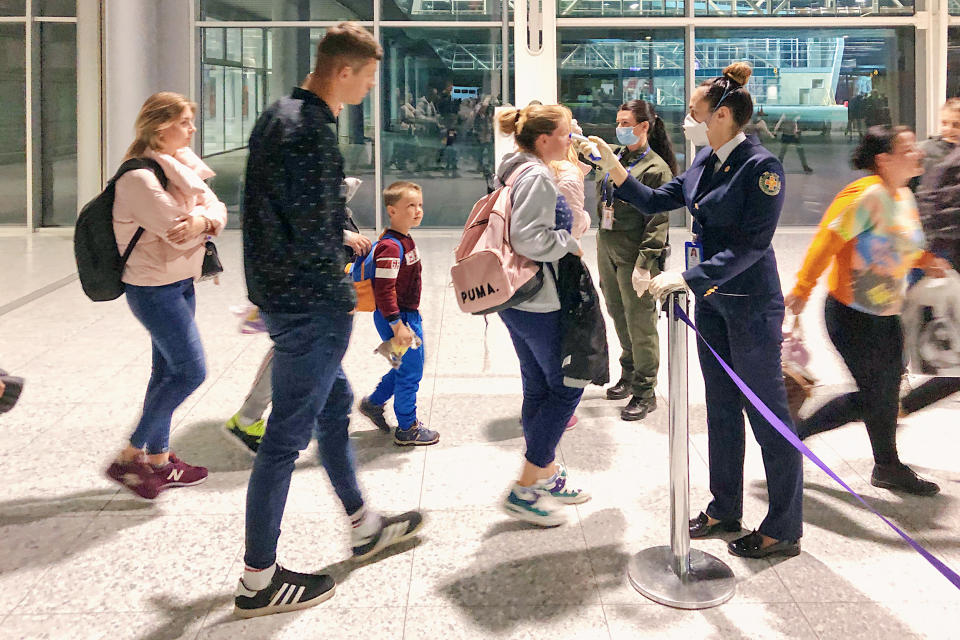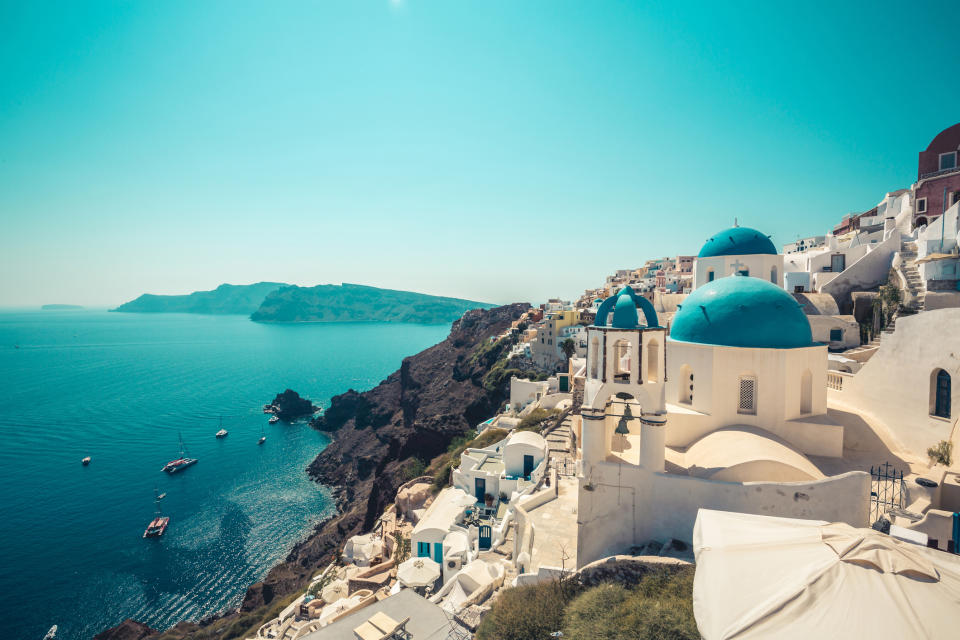Britons can travel to Italy for holiday but must quarantine for 14 days on their return

The Italian tourist board has announced that British visitors can now travel to Italy with no quarantine restrictions.
But before you start packing, it’s worth noting that the UK Foreign and Commonwealth Office (FCO) is currently advising against all but essential travel abroad.
What’s more, if you visit Italy from 8 June you will likely have to quarantine for 14 days on your return.
UK home secretary Priti Patel is expected to tell MPs the planned 14-day quarantine for arrivals is necessary “to prevent a second wave” of coronavirus.
But it is also hoped that “air bridges” to countries with low COVID-19 infection rates could be possible, which would mean people arriving from certain places will not have to self-isolate.
There are very few flights at the moment, and while the majority of major airlines are preparing to resume travel in July, this is entirely dependent on the FCO lifting its current restrictions.
Commenting on the welcoming of British tourists to Italy this summer, Flavio Zappacosta of the Italian tourist board commented: “The tourism industry is one of Italy’s key economy drivers so it is with utmost importance that we open for business as soon as it is safe to do so.
“We know how popular Italy is for Brits and hope we can inspire them to start to plan and book an Italian holiday this year.”
Read more: These are the most wished-for sandals on Amazon right now

Parts of Italy have already started to reopen following the easing of lockdown.
Museums, attractions, parks and gardens, bars and pubs, restaurants and ice cream shops have all now opened up and comply with a strict set of new guidelines and protocols respecting social distancing.
Beach resorts, gyms, swimming pools and sports centres have also opened.
From 15 June, Brits in Italy will be able to soak up Italian culture as theatres, concert halls, cinemas and other outdoor spaces also open their doors.
But visitors should be advised that it is mandatory in Italy to wear a mask in enclosed spaces, including public transport or anywhere people may not be able to exercise social distancing.
Read more: Coronavirus: How can an airway infection cause diarrhoea?
Italy isn’t the only country willing to accept British holidaymakers this summer.
Portugal's foreign minister has said anyone in the UK thinking of going to Portugal this summer will be “most welcome”.
Augusto Santos Silva said he hoped an air bridge between the UK and Portugal could be secured by the end of June.
Santos Silva told the BBC that an agreement between the two countries could be in place by the end of June, meaning holidaymakers returning to the UK from Portugal would escape the quarantine rules.
Portugal's foreign minister confirmed talks on the matter were continuing with the UK, but as it stands at the moment Portugal will not impose any type of quarantine for people arriving in the country.
Instead, Silva said Portugal would rely on temperature checks at airports.
Read more: Parents describe how it felt to send their children back to school

Greece is also hoping to welcome British holidaymakers this summer.
Earlier this week the country’s tourism minister confirmed that Brits would be able to holiday in Greece “without quarantine” from certain UK airports.
Greek authorities have said they will conduct coronavirus tests on visitors arriving from airports deemed high-risk by the EU's aviation safety agency EASA.
Meanwhile, Spain has revealed it will only allow UK tourists in this summer if the infection rate falls more significantly.
People will be required to self-isolate in a private residence for two weeks and the government has revealed people who break the rules could be fined £1,000.
And those wanting to travel to South Africa will have to hold on for a while – the South African government isn’t planning on opening to tourism until next year.
After a briefing from South Africa’s Department of Tourism on 27 May, it was reported by The Telegraph that international tourism won’t resume in South Africa until February 2021.



